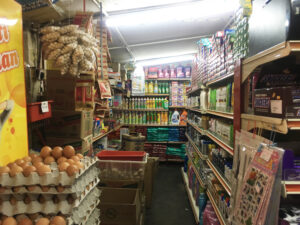
(Photo: timeout.com)
Kuala Lumpur City Hall (DBKL) released the “Federal Territory of Kuala Lumpur Alcoholic Beverage License Application Conditions and Guidelines” on November 16, stating the latest business guidelines and standards for vendors in Kuala Lumpur who already have a liquor license, and for those who want to apply for a liquor license. Operating procedures have been gradually implemented from November 15 this year.
The Kuala Lumpur and Selangor Chinese Assembly Hall (KLSCAH) believes that some of the provisions in the new liquor sales policy are not comprehensive enough and will raise more doubts. Once enforced, it will have wider implications on current liquor vendors, and will be unfair to those who wish to apply for liquor licenses.
KLSCAH emphasised that Kuala Lumpur is an international metropolis, and that DBKL should implement a policy that conforms to the international outlook of businesses to fully demonstrate the metropolitan spirit of multicultural harmony and co-prosperity. The new liquor sales policy undoubtedly runs to counter this, as well as violate the rights of non-Muslims.
Moreover, domestic economic activities have been hit hard by the COVID-19 pandemic. Although the relevant new guidelines will only be implemented in Kuala Lumpur, other states will not be affected. However, as the capital of this country, any form of prohibition measures will have major impact. Once the policy is in effect, it will hit the national and federal level economic development, and the gain is not worth the loss.
Therefore, KLSCAH suggests that DBKL conduct multi-faceted interviews, investigations and consultations with representatives of liquor merchants and sundry shops in Kuala Lumpur. After in-depth investigation, readjust guidelines that are unfair to liquor vendors. The new guidelines should only then be implemented after the readjustments.
An analysis of the new guidelines by KLSCAH is as follows:
1. The new guidelines stipulate that groceries, convenience stores and Chinese medicine shops in Kuala Lumpur will be banned from selling hard liquor from October 1, 2021. This raise questions on whether it is a disguised target towards the development of the domestic retail industry. Since the sale of liquor is allowed in shopping malls, why aren’t retail stores in various communities in Kuala Lumpur allowed to?
2. For Chinese medicine practitioners, although the guidelines stipulate that alcohol-containing medicinal liquors used for medicinal purposes will not be restricted, it does not clearly clarify the types of liquor that are forbidden to be sold. This can easily cause confusion across the industry and neglect other types of spirits, especially those with Chinese medicinal properties.
3. The new guidelines dictate different liquor sales hours for various places. This will severely impact the sales of the relevant businesses. In addition to the restriction of selling liquor, conditions are also imposed on grocery stores, convenience stores and Chinese medicine shops that sell beer. Restricted to be sold from 7am to 9pm, this will undoubtedly worsen the situation of businesses involved in the industry. DBKL must provide an explanation on whether the new guidelines are based on the Movement Control Order (MCO), or will be still in motion after the end of the MCO.
THE KUALA LUMPUR AND SELANGOR CHINESE ASSEMBLY HALL (KLSCAH)

 中文
中文 BM
BM